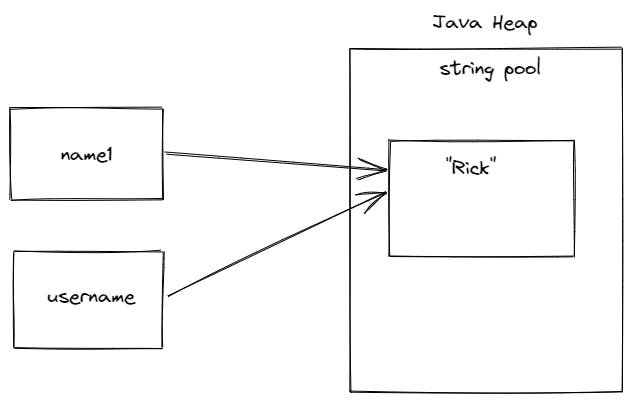What Is Unalterable Strings and Exactly How It Works
In the realm of programming, comprehending the idea of immutable strings is critical for creating durable and safe and secure applications. Immutable strings refer to strings that can not be altered after they are produced, making sure data stability and predictability within the code.
The Fundamentals of Unalterable Strings
Unalterable strings, as a basic principle in programming, are personality series that can not be transformed as soon as they are developed. This means that when a string is appointed a value, that value can not be changed. In languages like Python and Java, strings are immutable things, causing various ramifications in terms of memory management and data stability.
One of the key benefits of unalterable strings is that they supply a complacency in information adjustment. Given that the content of an unalterable string can not be customized, it guarantees that the initial information continues to be undamaged, decreasing the threat of unintended changes during program implementation (Why are strings immutable in Java?). This home also simplifies debugging processes, as programmers can trust that when a string is defined, its value will not be accidentally modified
When a brand-new string is developed based on an existing one, rather than customizing the original string, the brand-new value is kept individually. Overall, comprehending the essentials of immutable strings is essential for mastering programming concepts and optimizing code efficiency.
Benefits of Unalterable Strings
Building upon the protection and performance benefits of immutable strings, their benefits include improving code integrity and simplifying concurrent shows jobs. By being immutable, strings can not be customized after development, which gets rid of the danger of unintentional modifications in the data they save. This integral immutability makes certain that as soon as a string is produced, its value remains consistent throughout the program's execution, reducing the possibilities of bugs triggered by unanticipated changes.
Furthermore, immutable strings add to code integrity by making it simpler to reason about the state of a program. Because strings can not be altered, designers can trust that a string will certainly constantly hold the exact same value, streamlining debugging and upkeep initiatives. This predictability results in a lot more stable and reliable codebases.

Application in Shows Languages
Within numerous programs languages, the incorporation of immutable strings is an essential element that influences just how data is taken care of and manipulated within code frameworks. The execution of unalterable strings differs across different programming languages, with each language offering its own mechanisms to support this concept.

On the other hand, languages like C and C++ do not have built-in support for immutable strings. Programmers in these languages have to manually implement immutability by implementing rules within their code to protect against straight alterations to string objects.
Best Practices for Dealing With Immutable Strings
When taking care of immutable strings in programs languages like Java and Python, sticking to ideal techniques makes certain secure and reliable data adjustment. Among the crucial best practices is to use StringBuilder or StringBuffer as opposed to straight manipulating strings, specifically when handling extensive concatenation procedures. These classes supply mutable options for string control, helping to avoid unnecessary memory allowances and improving performance.
One more finest method is to use string interpolation or format operates provided by the language rather than check that hands-on concatenation. This not only improves readability however also aids in avoiding common risks such as unintentional string modifications. Furthermore, when collaborating with delicate data such as passwords or API secrets, it is crucial to stay clear of storing them as simple message in unalterable strings. Utilizing safe storage space devices like char ranges or specialized collections for managing sensitive info assists mitigate protection dangers connected with unalterable strings.
Real-world Applications and Examples
Discovering functional executions of unalterable strings in various sectors discloses their significant look at this site influence on information honesty and system dependability. In the healthcare market, unalterable strings play an essential duty in making certain the security and confidentiality of client information. By preventing unauthorized alterations to sensitive info such as clinical documents and prescriptions, immutable strings help maintain compliance with rigorous personal privacy regulations like HIPAA.
Banks additionally profit from the unalterable nature of strings to enhance the safety of consumer data and purchase documents. Unalterable strings assist stop scams and unauthorized changes to economic information, supplying a durable defense versus cyber risks and making certain the count on and confidence of customers.

Conclusion
Finest practices for functioning with immutable strings include staying clear of direct adjustments and using methods that return brand-new string items. Real-world applications of immutable strings consist of information security, caching, and string control tasks.
Unalterable strings refer to strings that can not be modified after they are created, making certain data integrity and predictability within the code. When a brand-new string is produced based on an existing one, instead than modifying the initial string, the new value is stored separately.In languages like Java and Python, strings are unalterable by default, meaning that as click for more soon as a string object is produced, its worth can not be altered - Why are strings immutable in Java?. Finest practices for functioning with immutable strings include staying clear of straight adjustments and making use of approaches that return brand-new string things. Real-world applications of immutable strings include data encryption, caching, and string adjustment tasks